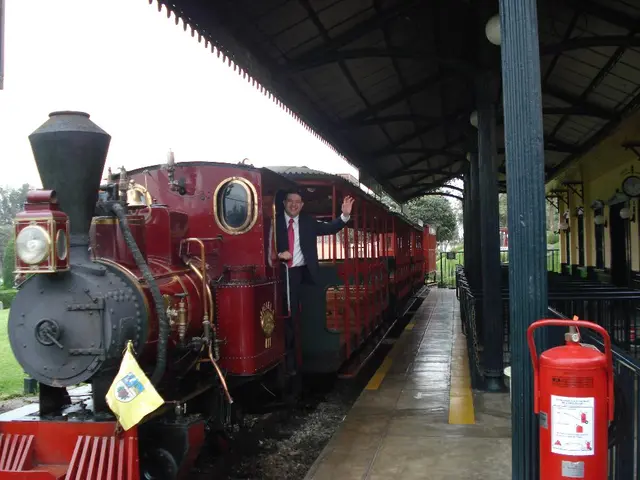Helicopter industry association discloses insufficient availability of replacement components in the industry.
In the heart of Russia, a daunting predicament unfolds. The country's fleet of Mi-8 helicopters is grappling with an urgent issue—over a hundred engines are on the verge of replacement, and the queue for spare parts stretches all the way to 2027, as reported by the Association of Helicopter Industry (AVI).
A financial squeeze looms large. By the end of 2022-2024, the expense of overhauling the TV2-117 engine surged by an alarming 209%, while the TV3-117 saw a staggering 291% increase, as per data from AVI and confirmed by "Izvestia". The situation isn't much better for auxiliary power units AI-9V, essential for starting the main engines of various helicopters, where repair costs have soared by 33%. These units are vital to numerous helicopters, including Ka-27, Ka-29, Ka-32, Ka-50, Mi-14, Mi-24, and Mi-28, affecting both Czech and Russian units.
Market players have reported that overhauled engine prices have almost tripled. Before 2022, an overhauled engine would set you back between 25-30 million rubles; now, it costs a hefty 75-90 million rubles. Critical components also face extended delivery times, with waiting lists reaching as far as 2027-2028.
The skies grow quieter. The escalating need for engine replacements means a significant number of Mi-8s are either grounded or operating under reduced flight hours. Both military and civilian operations, including transport and logistics, are significantly impacted.
A collective cry for help. Operators have appealed to the government to institute a program aimed at resolving this issue. Both "Rostec" and the United Engine Corporation acknowledge that the prolongation of serving old power units is no longer viable, and new engines are necessary. Nevertheless, they require government funding to facilitate this change. Without financial aid, operators won't have the means to purchase new engines.
Moscow, Zoya Oskolkova
© 2025, RIA "Novy Day"
What's driving this predicament? A complex mix of factors appears to be at play. The intense operational use and potentially shortened maintenance cycles have resulted in a large-scale need for replacements, putting pressure on the availability and cost of parts and engines. Additionally, Ukraine's reliance on smuggling and illicit procurement of Russian-made helicopter parts highlights that these components are both in high demand and critical to the supply chain, which could contribute to price inflation.
The ripple effects. The urgent need for replacements, coupled with government budget cuts and manufacturing delays, could prolong downtime and reduce fleet availability. This is a significant challenge for operators and may necessitate future policy adjustments to restore stability to the sector.
- The aerospace industry's finance sector is under strain due to the escalating costs and extended delivery times of engines for Mi-8 helicopters, affecting both Russian and Czech operators, and potentially requiring government intervention to facilitate new engine production.
- The business implications of this predicament extend beyond the aerospace industry, as the grounding or reduced operation of Mi-8 helicopters impacts transport and logistics operations both militarily and civilly, potentially necessitating policy adjustments to restore sector stability.






